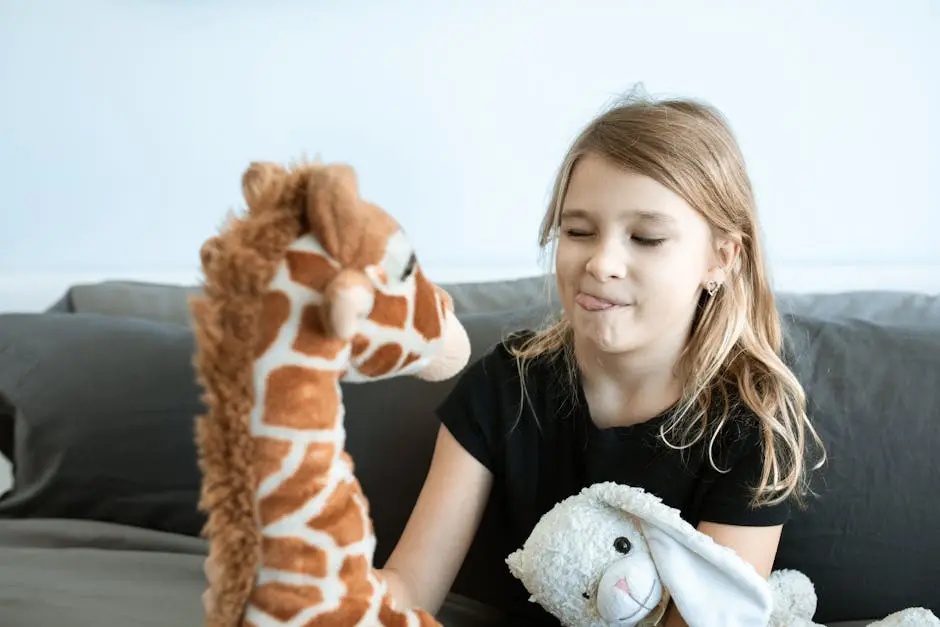Latest Blogs
How Do Montessori Toys Enhance Learning?
26th September 2024
Montessori toys are designed to foster creativity, independence, and a love of learning in children. In this blog, we'll explore how these toys can significantly enhance learning experiences for young minds.

Understanding Montessori Principles
Montessori principles emphasise child-led learning, allowing children to explore at their own pace. This approach encourages curiosity and promotes intrinsic motivation.
One key aspect of Montessori education is the importance of the environment. It should be prepared with materials that are engaging and accessible. Montessori toys are typically designed with this principle in mind, offering activities that ignite the child's imagination.
These toys are not just playthings; they are tools for discovery. By understanding how Montessori principles underpin these toys, we can better appreciate their role in enhancing learning.
For instance, when children manipulate Montessori materials, they learn through tactile experiences. This type of learning is invaluable and often more memorable than passive forms of instruction.
Benefits of Hands-On Learning
Hands-on learning, often referred to as kinaesthetic learning, allows children to engage directly with materials. This interactive process helps solidify understanding, as children can experiment, make mistakes, and learn from them.
Montessori toys facilitate this type of learning beautifully. For example, stacking blocks can teach spatial relationships and improve fine motor skills, all while keeping children engaged. The joy of building and creating fosters a love for learning.
Moreover, hands-on learning supports various learning styles. Whether a child is visual, auditory, or kinaesthetic, Montessori toys can cater to their individual needs, making the educational experience inclusive.
When children actively explore their environment with these toys, they develop problem-solving skills and critical thinking. This active participation stands in stark contrast to traditional learning methods, illustrating the true power of hands-on activities.
How Montessori Toys Foster Independence
One of the standout features of Montessori toys is their ability to foster independence. These toys encourage children to make choices and take responsibility for their learning experiences.
When children engage with Montessori materials, they often work solo or in small groups. This setup nurtures self-management and confidence, as they learn to navigate challenges without direct adult intervention.
For example, a set of nesting cups allows a child to explore the concepts of size, color, and order all on their own. This kind of exploration not only enhances their understanding of the world around them but also empowers them to think independently.
Fostering independence is essential for developing lifelong skills. As children learn to trust their instincts and capabilities, they build resilience that will benefit them throughout their educational journey and beyond.
Encouraging Problem-Solving Skills
Montessori toys are ingeniously designed to promote problem-solving skills. By engaging in activities designed to challenge them, children learn to think critically and creatively.
When kids manipulate puzzles, for example, they're not just playing; they're enhancing their logical thinking. Figuring out how pieces fit together teaches them to approach challenges methodically.
This problem-solving process is crucial for cognitive development. As children try different approaches to solve a problem, they learn to assess outcomes and adjust their strategies, creating a strong foundation for later academic success.
Furthermore, as they tackle these tasks, they're naturally building perseverance. The sense of accomplishment they feel when solving a challenge not only boosts their confidence but also ignites a passion for learning.
Incorporating Montessori Toys at Home
Incorporating Montessori toys into the home environment can be a delightful and educational experience. Parents can create a learning-rich environment that mirrors the principles of Montessori education.
Start by selecting toys that align with Montessori methods—look for options that promote exploration, creativity, and problem-solving. Simple, open-ended toys like building blocks, art supplies, or nature-based items can be excellent choices.
Moreover, allowing children to choose their activities fosters autonomy. Set up a designated area where they can freely access their toys, encouraging them to engage with them whenever they feel like it.
Finally, partake in joint activities. While child-led exploration is paramount, joining your child in their play can enhance the experience. Discuss what they’re building or creating, ask open-ended questions, and celebrate their achievements.
Final Thoughts on Montessori Toys and Learning
By providing hands-on learning experiences and promoting self-directed play, Montessori toys not only make learning enjoyable but also lay a strong foundation for lifelong skills. Parents and educators can leverage these tools to support children's development in an engaging way.
